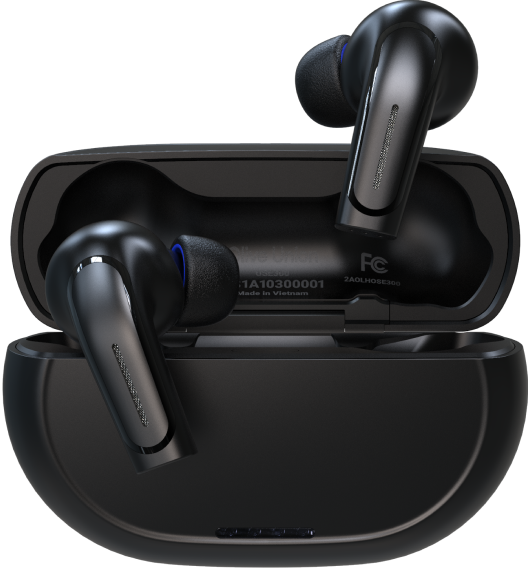
Although it would be great to be able to jump in the pool or shower without having to worry about your hearing aid, there are no truly waterproof hearing aids available on the market. Most hearing aids made today are water-resistant to some degree, which means that they are designed to handle some moisture, but not prolonged submersion in water.
Just like other sophisticated electronic devices such as smartphones and laptops, hearing aids function best when they are kept clean and dry. All hearing aid manufacturers warn users to not submerge their device in water. However, we're all human, and you may forget and take a dip in the pool or step into the shower before remembering that you’re wearing your hearing aids. So what can you do if your hearing aids get wet?
Can You Get Your Hearing Aid Wet?
The short answer is NO. However, if you do happen to get your hearing aid wet, you probably won’t need to replace it - today’s electronics are built to be resilient against water intrusion and your hearing aid is no different. All hearing aids come with an IP rating, determined by the International Electrotechnical Commission. Usually found on the outside of the hearing aid packaging, the first digit rates the device on how well it protects against dust and debris on a scale from one to seven. The second digit rates the device's protection against water or moisture intrusion on a scale from one to nine.
For example, a hearing aid with a rating of IP67 is well protected against dust intrusion and moderately well protected against moisture intrusion. The most water-resistant hearing aids currently available will have an IP rating of IP68. These devices are rated to withstand brief immersion in water and continue functioning. However, there are some immediate steps you should take if your hearing aid gets wet, no matter the IP rating.
How to Dry Your Hearing Aid
If you accidentally wear your hearing aids into the shower or the pool, don’t panic just yet. Instead, follow these steps to dry out your hearing aid as quickly as possible:
-
Remove the hearing aid from the water as soon as you possibly can.
-
Switch off your hearing aid immediately, and don’t consider turning it back on until it’s had time to dry properly.
-
Remove the battery, dry with a clean dry cloth, and then set aside.
-
Remove the tube if one is present, and shake the whole device gently to try to remove as much water as possible.
-
Using a hairdryer or a fan to dry the hearing aid can help, but be very careful to not let your hearing aid get too hot. Use the blow-dryer on a low setting and keep it a few inches away from your device.
-
Let the hearing aid dry out, which may take several days. Make sure to leave the battery door open and let it sit in a dry area, ideally with air flow. Better yet, store your hearing aids in a dehumidifier, which will shorten the drying time considerably. If you do have a dehumidifier, run the dehumidifier for approximately 24 hours, which should be about three or four drying cycles.
-
Once the hearing aid is dry, put the battery back in and try turning it on. If it won’t turn on, then consider letting it dry longer or have your audiologist inspect it. Worse comes to worse, it might need to be sent in for repairs.
-
If your hearing aid comes into contact with salt water or dirty water, still follow the same procedures outlined above, but first rinse the device immediately with fresh water before doing anything else. Salty or dirty water could harbor dangerous bacteria and potentially corrode any exposed metal components.
Now that you know what to do if your hearing aid gets wet, let’s briefly discuss what not to do in the event of accidental submersion:
-
Never try to dry your hearing aid by putting it in the microwave or oven. Your hearing aid will be exposed to far too much heat; it will most likely melt and then you will definitely need to purchase a new one.
-
Don’t just assume your hearing aid is ruined because it got wet. You spent a considerable amount of money on your hearing aids, so don’t give up on them! Give them time to dry and if all else fails, talk to your audiologist about having your hearing aid repaired.
Can I Dry My Hearing Aids in Rice?
You may have read or heard about this method when it comes to wet phones, but is it effective in regards to hearing aids as well?
According to a 2017 study, "White rice shows promise as an effective alternative to commercial desiccants in reducing moisture in hearing aids..."!
While traditional dehumidifiers are the safer and recommended option, in a pinch, that bag of rice in your closet could save you thousands!
The information in this guide has been written using the following reliable sources:
https://uk.rs-online.com/web/generalDisplay.html?id=ideas-and-advice/ip-ratings
https://pubmed.ncbi.nlm.nih.gov/27869510/
https://www.healthyhearing.com/report/30926-Long-do-hearing-aids
https://www.hearingyourbest.com/5-factors-that-affect-how-long-hearing-aids-last/
https://www.hearingaidknow.com/if-your-hearing-aid-gets-wet
https://www.hear-it.org/When-your-hearing-aid-gets-wet
https://www.healthyhearing.com/report/52887-The-basics-of-waterproof-hearing-aids
 (708) 847-3208
(708) 847-3208











